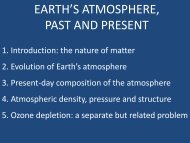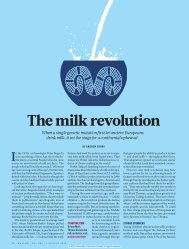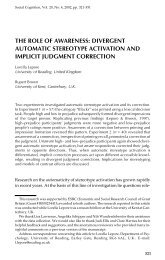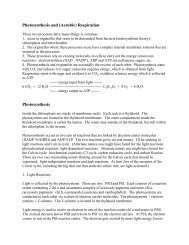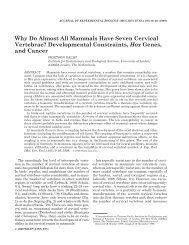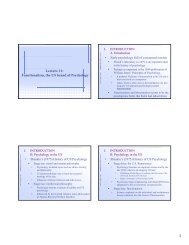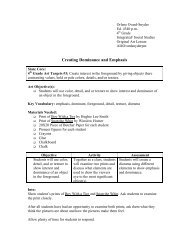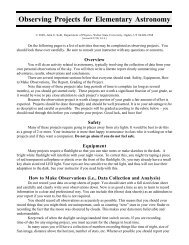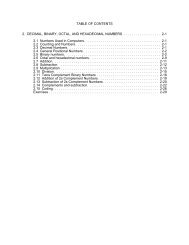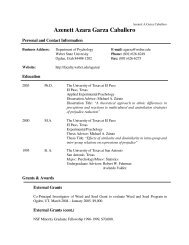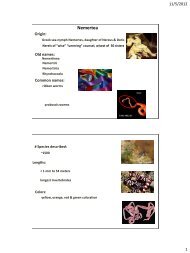Lecture 18: Rationalism - Weber State University
Lecture 18: Rationalism - Weber State University
Lecture 18: Rationalism - Weber State University
You also want an ePaper? Increase the reach of your titles
YUMPU automatically turns print PDFs into web optimized ePapers that Google loves.
II. THE CONTINENTAL RATIONALISTS<br />
E. Thomas Reid<br />
Thomas Reid (1710 –1796)<br />
Scottish philosopher and founder<br />
of the Scottish School of Common<br />
Sense<br />
Reid claimed that our common sense<br />
(sensus communis) justify our belief<br />
in an external world.<br />
Because all humans are convinced of the<br />
existence of physical reality, it must<br />
exist.<br />
Direct Realism<br />
<br />
Sensations are an accurate reflection<br />
of reality immediately, not after the<br />
mind has operated on them.<br />
II. THE CONTINENTAL RATIONALISTS<br />
F. Thomas Reid<br />
Reasoning powers of the mind<br />
include several faculties.<br />
More than a classification, as done<br />
by other faculty psychologists (c.f.,<br />
human mind consists of separate or<br />
trainable powers or faculties).<br />
Mental faculties are active<br />
powers of the mind<br />
They actually existed and<br />
influenced people’s thoughts and<br />
behavior.<br />
II. THE CONTINENTAL RATIONALISTS<br />
G. Immanuel Kant<br />
Immanuel Kant (1724 – <strong>18</strong>04).<br />
Proposed that the mind must add<br />
something to sensory data before<br />
knowledge can be attained.<br />
Up to now it has been assumed<br />
that all our cognition must<br />
conform to the objects; but ...let<br />
us once try whether we do not get<br />
farther with the problems of<br />
metaphysics by assuming that the<br />
objects must conform to our<br />
cognition<br />
II. THE CONTINENTAL RATIONALISTS<br />
G. Immanuel Kant<br />
The quality of mind was<br />
provided by a priori (or before<br />
experience) categories of<br />
thought.<br />
10 A priori categories of<br />
thought:<br />
Unity, totality, time, space, cause<br />
and effect, reality, quantity,<br />
quality, negation, possibilityimpossibility,<br />
and existencenonexistence.<br />
4



